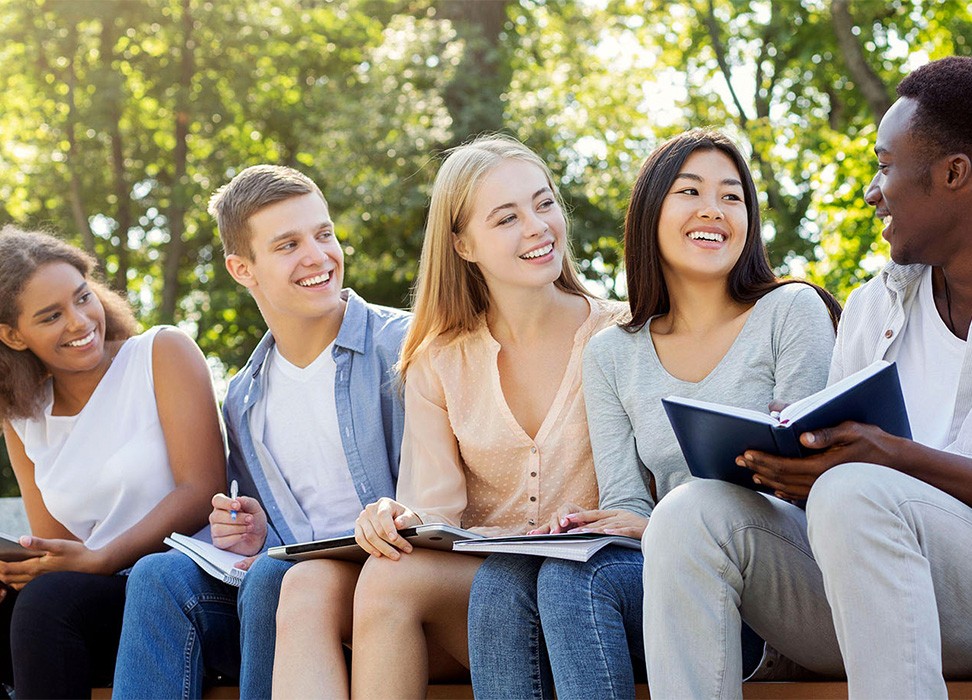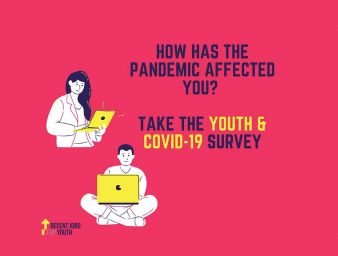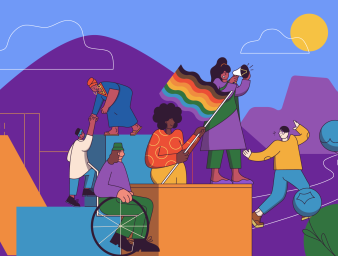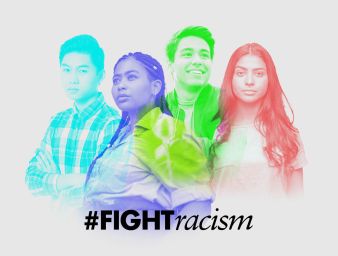Young human rights educators inspire peers to take action
04 January 2024

They come from different countries and regions of the globe and have distinct experiences that have shaped their young lives. But Irfaan, Aiki, Soufiane, Dejana, Maselina, Allán and Aizat all share the same dream: to build a world in which all human beings are equal.
From South Africa to Japan, from Morocco to Serbia, from Samoa to Mexico and Kyrgyzstan, the seven are young human rights educators who work in their communities to inspire young people to take action and promote human rights.
They are the protagonists of a documentary called “Changemakers: stories of young human rights educators,” which was released to mark the 75th anniversary of the Universal Declaration of Human Rights.
Co-produced by UN Human Rights, Amnesty International and Soka Gakkai International, the film pays tribute to young educators who empower other young people to advocate for equality, respect, and dignity for all.
“Human rights education has the power to bring real change and help us identify solutions to today’s challenges which are human rights-based,” said Elena Ippoliti, coordinator of Human Rights Education and Training at UN Human Rights.
“These young champions are an inspiring example of how young people can lead and nurture among their peers a culture of human rights to ensure no one is left behind.”

“Changemakers: Stories of Young Human Rights Educators” documents stories of young human rights educators from different countries and regions. © Changemakers
Empowering young people
Irfaan Mangera grew up in post-apartheid South Africa, an experience that made him aware that the fight to end injustice is not over. While the political system that institutionalized the racial segregation no longer exists, its legacy lives on in the form of racism, classism and social-economic exclusion, he said.
“The triple threat to South Africa’s future today is unemployment, poverty and inequality, and these are the results of the huge legacy of apartheid that excluded people,” said Irfaan, a community activist from the township of Lenasia, south of Johannesburg.
Irfaan, a member of the Indian South African community, spearheaded the creation of the National Youth Coalition to build a space for young people to fight racism and bring systemic change.
“Human rights education gives us a framework to empower young people to understand their rights and to protect and promote them so we can achieve the goal of equality,” he said.
Aiki Matsukura combats sexual exploitation of children, a taboo subject in Japan. Aiki provides support to survivors of sexual exploitation and raises awareness through campaigns using manga and videos, and through talks at schools and companies.
“When your human rights have been violated you lose the power and the strength you have. My job is to help young people bring that strength and worth back that they already have within them,” said Aiki.
“For me human rights education is to encourage one another, specially to encourage someone to believe in their own potential and worth.”
Liberation of speech
Soufiane Hennani, an activist for gender equality and gender diversity from Rabat, is the creator of a popular youth-oriented podcast called Machi Rojola that challenges unequal gender roles and promotes positive masculinities in Morocco.
Soufiane, a laureate of the Arab Foundation for Freedom and Equality’s social change program, said the podcast is a space of liberation of speech, where guests can talk about issues such as diversity, acceptance and human rights.
“You have to create an environment for young people to express themselves because these young people are the adults of tomorrow. Being part of a network of young people who do human rights education that promote human rights is an opportunity and a hope,” he said.

story-young-hr-educators-inspire-peers-take-action-medium-2.jpg
“
It’s young people who are demanding action on climate change, on racism, on gender equality and they are calling for justice and the fundamental freedoms and human rights we are all owed.
“
UN HUMAN RIGHTS CHIEF, VOLKER TÜRK
VIEW THIS PAGE IN:


